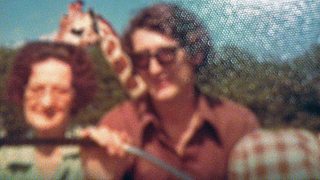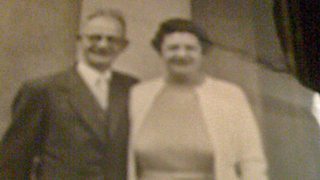
Blue Eyed Boy image
I had long wanted to tell the story of my father’s wartime evacuation, and the shady sequence of events that led to him not returning to his family after the war.ÌýÌý I am primarily a novelist but wanted to tell this story in a different form, one that crucially allowed my father to have a voice in telling his own drama.ÌýÌý I had worked with the wonderful radio producer Mary Ward Lowery before and when I heard she was particularly looking to make drama-documentaries I knew the story’s time had come.
There was much research to do once the idea was commissioned. Though I knew the bones of this wartime narrative, it has always been a painful subject for my father and large parts of his story were confused and obscure. We particularly had to untangle the complicated chronology of what happened when. I also talked in detail to my father about the tale’s emotional underpinnings. Why did he think his mother let him go?Ìý What did his brothers think of her decision?ÌýÌý How did he feel about being singled out as the only child to leave the family?

Picture of Helen's father and grandmother - key characters in the radio drama.
Hull libraries were very helpful to me. They found a list of evacuees who arrive in Willerby andÌý put me in touch with a local historian, Alan Hopper, who contacted members of his church group, who were around in Willerby during the 1940’s. One woman recalled the rough London slum kids arriving at the village school, and riotously playing football in the playground, the teacher blowing his whistle and yelling. ‘Lawrence Cross! Apologise right now.’
My first draft of the drama was conventionally structured, with strict scenes and detailed dialogue, including exactly what the interviewees, my father and myself, would reveal at which point. It is always crucial to get the structure of a story right, but particularly so when there is a lot of material, and many years to cover, in 45 minutes.Ìý I wanted to ensure the story was dramatically gripping, and that we tracked the emotional impact, in an intriguing way
We stripped this script down to a storyboard, detailing the narrative’s key scenes, and the content of each scene. From this storyboard,Ìý the actors could improvise around the material, creating a subtle and colloquial story style, allowing the dialogue to feel believable and delicately overheard.

Picture of Dick And Lil, Helen's grandparents & key characters in the radio drama.
Finally my father, myself and MaryÌý met up with the actors, John and Jane Godber,Ìý and my father shared small details about life with the Crosses, showed photos and answered the actors’ revealing questions about the true characters of Mr and Mrs Cross.ÌýÌý
Mary Ward Lowery is to be credited with much of the play’s final success.ÌýÌý The delicate layering of sound and the blending of present day interview, historical atmosphere and period drama is all down to her technical skill and tender understanding of the enormous power of audio.
is the writer of - a documentary-drama which tells the true story of her father, Lawrence Cross, the evacuee who never went home. Told through improvised interviews and re-created actuality, the play is constructed as a documentary, as if it were happening now.
It was Shortlisted for the Innovation Award in the ±«Óãtv .
Blue Eyed Boy is available to .
If you are interested in writing for Radio find out more about
Ìý
